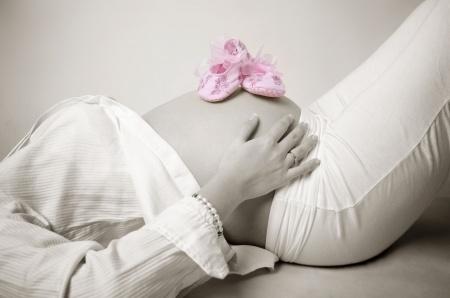Baby blues
The arrival of a child is never completely predictable and calibrated. Even after pregnancy and childbirth, which have worked perfectly well, young mothers may experience more or less severe disturbances. Besides the very classic baby blues, there is post-natal depression, a real depression, and puerperal psychosis. The latter is rare (one birth in a thousand) but very severe because, untreated, it can lead to a dramatic event.
Definition
Postpartum psychopathology encompasses all psychic disorders that may occur to a woman who has just given birth. We can distinguish baby blues, postnatal depression and puerperal psychosis.
– The baby blues is a benign depressive condition that affects about seven in ten births, around the third day after birth. It disappears spontaneously after a few days.
– Postnatal depression can begin with a baby blues that is prolonged, or occur several months after childbirth. One in ten women is affected. She presents the symptoms of depression, centered on her role as a mother and the relationship with the child.
– Puerperal psychosis, which affects 500 to 700 women in France each year for example, is characterized by severe mental instability and requires hospitalization.
Visible symptoms
– For the baby blues, the symptoms are: crises of tears for no apparent reason, fatigue, irritability, mood swings, anxiety, doubts about their ability to take care of the baby, sleep disorders, feelings of discouragement.
– Post-natal depression is characterized by persistent fatigue, frequent crying, obsessive thoughts, difficulty concentrating, a great lack of self-confidence, a permanent feeling of being overwhelmed, incompetent, ill-judged and ill Uncontrolled anger, anxiety attacks, and sometimes suicidal tendencies.
– For puerperal psychosis, there are confusions, hallucinatory delusions, loss of sleep, the major symptom is to hear voices that say to harm or even kill the baby.
Who is concerned ?
Women with little or no surroundings are of course more fragile. Family problems, poor relations with parents, tensions within the couple are all factors that can predispose to a baby blues or depression. “The relationship with her own mother is very important,” says Catherine Garnier-Petit, psychologist. “The mother has an imprint on her daughter, who in turn will put it on her own child, so if a woman has not taken care of her baby at birth, She becomes a mother “. Being back to home can be a “risky” moment, if the new mom is alone, overwhelmed, without support or anyone to confide in. For puerperal psychosis, the occurrence is completely unexpected. There is no psychiatric history.




